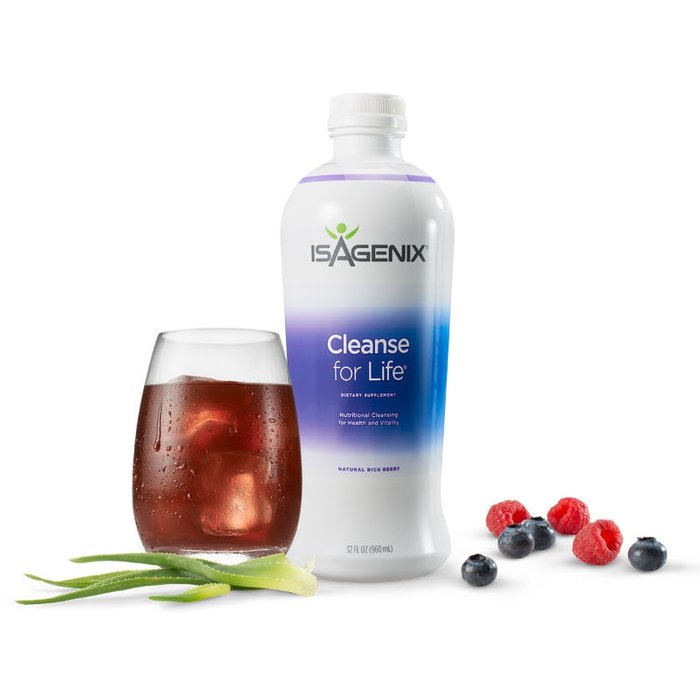Unique Xpressions
in Brockville
On October 27
at 4:34 PM
Whey More Than Protein: Unique Benefits of Whey Protein You May Not Know
Looking at the human diet, the main nutrients our bodies need, termed “macronutrients," fall into three categories: carbohydrates, fats, and proteins. The word “protein" is derived from the Greek word “proteio," roughly meaning “primary." This is fitting, as proteins play some particularly important roles in the body, including building tissues like muscle and functioning as enzymes and hormones.
Not surprisingly, supplying our bodies with high-quality dietary protein is important. Sources like meat, fish, and plant protein can all offer important health benefits. Another protein, the fraction of milk called whey, has some notable properties that make it a solid dietary option.
A Once-Neglected Product of Cheesemaking
Whey protein has been produced ever since cheesemaking began. Whey can be processed in a more concentrated form and dried into a powder. The whey protein powder can then be added to various food and dietary supplement products.
Whey offers a very high-quality protein as rated by its biological value, which measures how much of the protein can be utilized. For example, whey has a biological value of 104, meaning nearly all of the amino acids are used by the body This once-neglected byproduct is now a highly sought-after protein source not to be wasted.
Immune Support
Whey naturally contains a number of peptides, or short amino acid chains, that have been studied for their immune support benefits. Two peptides found in whey protein called alpha-lactalbumin and beta-lactoglobulin have been shown to support immune system functioning by boosting white blood cell function and production (3-5).
White blood cells are involved in protecting the body against infections and foreign bodies. A compound in alpha-lactalbumin and another component of whey called glycomacropeptide may also enhance the function of a group of white blood cells called macrophages that patrol and scavenge pathogens and foreign substances (6, 7).
Components of whey may even help increase immunity and, in the digestive tract, lead to better absorption of nutrients (8). Therefore, whey protein may provide support to the healthy functioning of the immune system.
Increasing the Antioxidant Glutathione
When examining the amino acid composition of whey, there is a notable amount of cysteine (9). This amino acid functions as the rate-limiter in the production of the antioxidant glutathione.
In our bodies, glutathione plays a critical role in the oxidation reduction and detoxification processes, which is important for our health (10). Consuming whey protein on a daily basis has been reported to increase glutathione levels in otherwise healthy individuals (11, 12).
Effects on Appetite
Whey protein may also impart some positive effects on appetite by increasing the feeling of fullness after consumption (13). Several research studies have noted decreased food intake for meals following servings of whey protein. Over time, this can reduce overall energy consumption and support weight loss efforts.
In conclusion, whey is more than just a protein. With these unique features, it may deserve a spot in your diet to help you meet your daily protein and wellness needs.
References for this article available on request.

Unique Xpressions
in Brockville
On August 17
at 4:39 PM
Mastering Sleep
Do you have trouble getting to sleep, getting enough sleep or staying asleep?
The following article comes from our health team at Isagenix. Hopefully, you will find some answers and strategies to help!
"As the earth revolves around the sun, there are periods of light and dark. Divided over 24 hours, when we experience daytime and nighttime depends on the time of the year as the earth's axis tilts at varying degrees.
It is no surprise that our bodies have adapted to the earth's day and night cycles by forming an internal process termed the circadian rhythm. The word circadian derives from the Latin roots 'circa,' meaning around, and 'diem' meaning day. This natural process regulates our body's sleep-wake cycle and repeats every 24 hours.
Importantly, this rhythm can respond to the environment. For example, light and heat can impact its cycling – just think back to the last time you had jet lag. Rapid travel in a plane to a completely different time zone puts your circadian rhythm out of sync with the local time. Your body can adapt, but it does take time. There is also a circadian rhythm toward body temperature, with the body cooling down overnight and warming up over the day.
How does the body regulate the circadian rhythm?
Our bodies contain a primary circadian clock located in a part of the brain known as the suprachiasmatic nucleus, a distinct group of cells located in the hypothalamus. This structure receives information about light through the eyes. The eye's retina contains the well-known photoreceptors – your “rods" and “cones" – which are used for vision. But the retina also contains specialized cells that project light directly to the suprachiasmatic nucleus, where they help synchronize a “master circadian clock". As an example of how critical this structure is, its destruction results in the complete absence of a regular sleep–wake cycle.
What's the point behind having a circadian rhythm?
The circadian rhythm helps regulate temperature, brain activity, hormone production, cell regeneration, and other biological activities. These patterns allow organisms to anticipate and prepare for precise and regular environmental changes. These patterns are also critical in regulating and coordinating normal metabolic processes. For instance, when mice have their clock genes effectively “deleted," they massively overeat, leading to obesity and high blood sugar. In humans, circadian misalignment, like nightshift work, can decrease energy expenditure and disrupt nutrient metabolism—a good sleep cycle is paramount to maintaining a well-functioning circadian rhythm.
How can I improve my sleep?
As mentioned, the specialized structure in the hypothalamus – the suprachiasmatic nucleus – takes information on the lengths of the day and night from the retina and interprets it. Importantly, this information is passed to the pineal gland, a tiny structure aptly shaped like a pinecone, which releases the hormone melatonin. Melatonin release peaks at night and is one of the primary mechanisms behind putting us to sleep . Secretion of melatonin peaks at night, and its presence provides information to your brain about night-length.
Blue light from natural sources (like the sun) and unnatural sources (like your computer or phone screen) strongly suppresses melatonin production. Therefore, viewing screens or using LED lights close to bedtime can make it hard to fall asleep. However, this does not mean blocking out blue light all the time is good. Exposure to blue light during the day is vital to suppressing melatonin secretion, which increases feelings of wellbeing, alertness, and cognitive performance .
One of the best ways to better synchronize your circadian rhythm and promote more restful sleep is to get sun exposure earlier in the day (without filtering out blue light) and then reduce blue light exposure in the evening. Supplementing melatonin close before bed can also help improve sleep quality. Finally, decreasing body temperature is very important for sleep. Paradoxically, an effective method is heating your body before bed with a warm shower or bath. The warm water turns on mechanisms in your body to dissipate heat and reduce overall body temperature (14).
With a regular sleep cycle, healthy amounts of sunshine, and even melatonin supplementation, you, too, can be an expert at sleep."
References to the above article upon request.

Unique Xpressions
in Brockville
On July 08
at 1:31 PM
It has been awhile since I have posted!
I have been struggling with my health. I am getting to the root cause(s) and finding solutions and answers that are helping me to get better.
What have I learned and what am I learning?
1/ Be your own advocate! If you feel something is not right - find your solution to become better and well.
2/ Be proactive before you have no choice but to be reactive.
3/ You may want to go for a second opinion.
4/ Your mind, body and soul are closely connected! What affects one part, can and will affect the other parts. Your physical health affects your mental health and vice versa.
5/ Harmony of mind, body and soul are so important.
6/ Find what makes you happy.
7/ Surround yourself with positive and uplifting people.
8/ Look after yourself first as if you are not well, you may not be able to be helpful to others. If you continue to drain yourself, in order to give to others, you may become very unwell.
9/ Eat nutritiously and cut out the processed and junk foods.
10/ Manage your stress, get enough sleep, hydrate your body.

Unique Xpressions
in Brockville
On March 05
at 11:14 AM
People have been fasting for thousands of years!
The definition of fasting is to “abstain from all or some kinds of food or drink, especially as a religious observance."
Christians forego various foods for seven weeks from Ash Wednesday to Easter.
Alcohol, candy, desserts, chocolate and meat are some that are most commonly given up for the time period.
Muslims all over the world adhere to the annual fasting month of Ramadan.
Intermittent fasting has become increasingly popular!
For those who have never fasted before, the 12/12 hour schedule is a normal place to start and should be adhered to.
As an example; eat meals starting at 8 am and finishing eating by 8 pm. Then abstain from eating from 8 pm at night until 8 am the next morning.
Once you have mastered the 12/12- then go to the 14/10, 16/8, and even the 18/6. The last example will be to abstain from eating (as an example) from 6 pm until 12 noon. Then only eat from 12 noon until 6 pm.
A prolonged fast can also be attempted, once you feel comfortable in doing intermittent fasting.
A prolonged fast ( 24 – 48 hours ) is not recommended if you haven't eaten nutritiously beforehand and haven't cut out the junk food, processed foods, nitrates, and white flour products.
I have been doing intermittent fasting and prolonged fasts (at least on a seasonal basis) and use a nutritious system that first floods my body with a powerhouse of nutrition and then cleanses my body on a cellular basis.
Many cleanses and fasts only address the toxins encapsulated in water.
They may be strictly a liver cleanse or a colon cleanse.
The one that I use detoxes my whole body with toxins found in water and in fat cells with no diuretics or stimulants.
If you are interested in finding out more about the system or the cleanse drink that I use, click on the following links.
https://bit.ly/3begQXI
https://bit.ly/2O0PIml
#health #cleanseforlife #fasting #detoxification #wellbeing #nodiuretic #cellularcleanse
#digestionbreak #moreenergy #weightwellness #traceminerals

Unique Xpressions
in Brockville
On February 19
at 11:19 AM
Commitment
This week's word is commitment.
I have been giving weekly health tips. If you'd like to be included, please send me a private message to my inbox or on social media.
Commitment is an act.
You are either in or you are out. There is no middle ground, no life in between. You cannot just sit "on the fence" as sitting on the fence is an act as well. You have not made a concrete decision if you are on the fence. If you are not ready to commit, to act - that is OK. If you are ready to act without any excuses - good for you!
Commitment takes planning.
What are you committed to and where do you want to go? Once you have made the decision to commit - you need to put the plan in place and schedule it.
Commitment makes the mind search for a solution.
If you are committed, there is always a way. How can you achieve the goal? Ask someone who has already accomplished the goal that you are seeking to achieve, to help you out.
Commitment is staying loyal to what you said you'd do long after the mood you said it with and the excitement has left you.
If you have realized the importance of your goal and if your goal is actually important to you, you will stay committed. Write down the thing(s) that excited you about the goal that had you commit in the first place. An accountability partner can help you. Share your vision with them. Share your thoughts and what it would mean for you and others when you achieve the goal.
Commitment is the foundation of achieving your goals and of accomplishment.
Your goal starts with a commitment to achieve it. Your goal starts with a reason of why it's important to you. Your goal starts with a pain point and an area that you don't want to be in anymore which makes you commit to the goal and a new start.
Commitment has importance.
It is more than just an idea or an interest. It has a reason and an understanding behind the act. It is a determination of achieving something that is important to you. If it wasn't important to you, you probably wouldn't commit in the first place. Ask yourself again; Why am I committed to this goal? How will it impact me? How will it impact my family? How will I feel when I have achieved this goal?
What are you committed to this week when it comes to your health? Are you aware of what you need to do to begin? Do you have that belief in yourself?
If not- I am here to help!
You've got this!
yours in health,
Sue Davies
#commitment #health #wellness #belief #awareness #wellbeing #goal #healthtip #decision #beliefinself #begin #lifeplan #nutrition #solutions #transformation

Page 2 of 20


